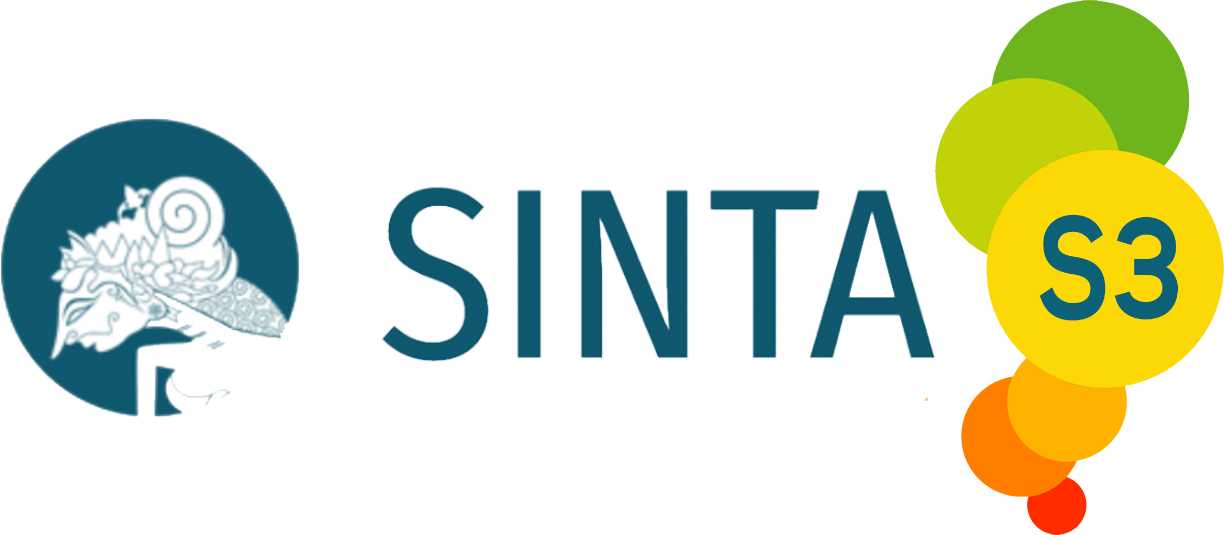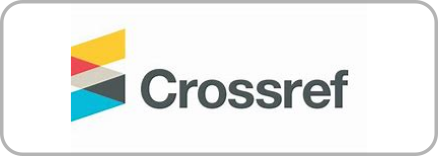Konsep Ta’dib dan Relevansinya Terhadap Pendidikan Karakter Anak Usia Dini
DOI:
https://doi.org/10.12928/taqaddumi.v2i2.7059Keywords:
ta'dib, character education, early childhoodAbstract
This study discusses the concept of ta'dib and its relevance to children's character education. Ta'dib is an educational concept that aims to produce civilized human beings. Ta'dib is an intellectual, spiritual, and social education for teenagers and adults. Character education of children is an urgent matter that needs attention. Character education is not only about making children behave well, but more about forming good thoughts, characters, and behaviors so that children succeed. Data collection in this study was carried out by reviewing and digging up several relevant journals, books and literature. This research is a descriptive qualitative analysis, which attempts to describe the concept of ta'dib and its relevance to early childhood character education. The relevance of the concept of ta'dib with early childhood character education is aimed at producing intelligent and intelligent children, having noble character, having physical faith and piety, present in daily behavior.
References
Ahmad. “Konsep Ta’dib Syed Muhammad Naquib Al-Attas Dan Implikasinya Dalam Pendidikan Islam.” Jurnal An-Nur 13, no. 1 (2021): 32–50.
David, Mohammad, El Hakim, and Eni Fariyatul Fahyuni. “Pendidikan Islam Dalam Perspektif Syed Naquib Al-Attas Dan Relevansinya Bagi Pengembangan Pendidikan Islam Di Indonesia.” Jurnal Islamika 2, no. 1 (2020): 46–62.
Elfan Fanhas, F Kh, and Mukhlis Gina Nurazizah. “Pendidikan Karakter Untuk Anak Usia Dini Menurut Q.S. Lukman : 13 – 19.” PEDAGOGI: Jurnal Anak Usia Dini Dan Pendidikan Anak Usia Dini 3, no. 3a (2017): 42–51.
Hadisi, La. “Pendidikan Karakter Pada Anak Usia Dini.” Jurnal At-Ta’dib 8, no. 2 (2015): 50–69.
Hasibuan, Albar Adetary. “Ta’dib Sebagai Konsep Pendidikan: Telaah Atas Pemikiran Naquib Al-Attas.” Jurnal At-Turas 3, no. 1 (2016): 43–54.
Hirnawan, Luqman Azis. “Konsep Ta’dib An-Naquib Al-Attas Dan Humanisme Paulo Freire Serta Relevansinya Dengan Pendidikan Islam.” Universitas Islam Indonesia, 2020.
Jaya, Farida. “Konsep Dasar Dan Tujuan Pendidikan Dalam Islam: Ta’lim, Tarbiyah Dan Ta’dib.” Jurnal Tazkiya IX, no. 1 (2020): 63–79.
Khaironi, Mulianah. “Pendidikan Karakter Anak Usia Dini.” Jurnal Golden Age Universitas Hamzanwadi 01, no. 2 (2017): 82–89.
Machsun, Toha. “Pendidikan Adab, Kunci Sukses Pendidikan.” Jurnal EL-Banat 6, no. 2 (2016): 224–34.
Mulyasa, H.E. Manajemen PAUD. Edited by Pipih Latifah. Keenam. Bandung: PT Remaja Rosdakarya Offset, 2019.
Nanu, Rafiyanti Paramitha. “Pemikiran Syed Muhammad. Naquib AL-Attas Terhadap Pendidikan Di Era Modern.” Jurnal Tarbawi 06, no. 01 (2021): 14–29.
Noer, A L I, and Syahraini Tambak. “Konsep Adab Peserta Didik Dalam Pembelajaran Menurut Az-Zarnuji Dan Implikasinya Terhadap Pendidikan Karakter Di Indonesia.” Jurnal Al-Hikmah 14, no. 2 (2017): 181–208.
Othman, Zuraidah. “Pembentukan Ilmuwan Beradab Melalui Penerapan Konsep Ta’dib Dalam Pendidikan Suatu Analisis.” Jurnal Al-Tamaddun Bil 8, no. 2 (2013): 27–35.
“Qur’an Kemenag,” n.d.
Ridwan, Muhammad. “Konsep Tarbiyah, Ta’lim Dan Ta’dib Dalam Al-Qur’an.” Jurnal Nazhruna 1, no. 1 (2018): 37–60.
Saleh, Fauzi Ansori, Muqowim, and Radjasa. “Adab Siswa Terhadap Guru Menurut Pandangan Sayyid Muhammad Naquib Al-Attas Dalam Menjawab Tantangan Revolusi Industri 4.0.” Jurnal Tawadhu 4, no. 2 (2020): 1085–1113.
Sholichah, Aas Siti. “Urgensi Pendidikan Karakter Pada Anak Usia Dini Dalam Tinjauan Neurosains.” JECIES: Journal of Early Childhood Islamic Education Study 1, no. 1 (2020): 01–14. https://doi.org/10.33853/jecies.v1i1.51.
Sudaryanti. “Pentingnya Pendidikan Karakter Bagi Anak Usia Dini.” Jurnal Pendidikan Anak 1, no. 1 (2015): 11–20. https://doi.org/10.21831/jpa.v1i1.2902.
Suhandi. “Konsep Pendidikan (Ta’dib) Untuk Membentuk Kepemimpinan Menurut Al-Attas.” Jurnal Kalimah 18, no. 2 (2020): 202–21.
Suryadarma, Yoke, and Ahmad Hifdzil Haq. “Pendidikan Akhlak Menurut Imam Al-Ghazali.” Jurnal At-Ta’dib 10, no. 2 (2015): 361–81.
Suyadi, and Maulidya Ulfah. Konsep Dasar PAUD. Edited by Nita Nur Muliawati. Keenam. Bandung: PT Remaja Rosdakarya Offset, 2017.
Suyanto, Slamet. “Pendidikan Karakter Untuk Anak Usia Dini.” Jurnal Pendidikan Anak 1, no. 1 (2012): 1–10. https://doi.org/10.46963/mash.v3i02.150.
Suyuthi, Ahmad. “Ta’dib Sebagai Upaya Rekonstruksi Pendidikan Islam Perspektif Syed Naquib Al-Attas Al Hikmah.” Jurnal Al-Hikmah 1, no. September (2011): 156–69.
Syafa’ati, Sri, and Hidayatul Muamanah. “Konsep Pendidikan Menurut Muhammad Naquib Al-Attas Dan Relevansinya Dengan Sistem Pendidikan Nasional.” Jurnal PALAPA 8, no. 2 (2020): 285–301.
Tas’adi, Rafsel. “Pentingnya Etika Dalam Pendidikan.” Jurnal Ta’dib 17, no. 2 (2014): 189–98.
Zed, Mestika. Metode Penelitian Kepustakaan. Cetakan Ke. Jakarta: Yayasan Pustaka Obor Indonesia, 2014.
Downloads
Published
Issue
Section
License
Copyright (c) 2023 Nidaan Khafiyya

This work is licensed under a Creative Commons Attribution-ShareAlike 4.0 International License.
License and Copyright Agreement
In submitting the manuscript to the journal, the authors certify that:
- They are authorized by their co-authors to enter into these arrangements.
- The work described has not been formally published before, except in the form of an abstract or as part of a published lecture, review, thesis, or overlay journal. Please also carefully read the Taqaddumi Author Guidelines at http://journal2.uad.ac.id/index.php/taqaddumi/about/submissions#onlineSubmissions
- That it is not under consideration for publication elsewhere,
- That its publication has been approved by all the author(s) and by the responsible authorities – tacitly or explicitly – of the institutes where the work has been carried out.
- They secure the right to reproduce any material that has already been published or copyrighted elsewhere.
- They agree to the following license and copyright agreement.
Copyright
Authors who publish with the Taqaddumi Journal agree to the following terms:
- Authors retain copyright and grant the journal right of first publication with the work simultaneously licensed under a Creative Commons Attribution License (CC BY-SA 4.0) that allows others to share the work with an acknowledgment of the work's authorship and initial publication in this journal.
- Authors are able to enter into separate, additional contractual arrangements for the non-exclusive distribution of the journal's published version of the work (e.g., post it to an institutional repository or publish it in a book), with an acknowledgment of its initial publication in this journal.
- Authors are permitted and encouraged to post their work online (e.g., in institutional repositories or on their website) prior to and during the submission process, as it can lead to productive exchanges, as well as earlier and greater citation of published work.








